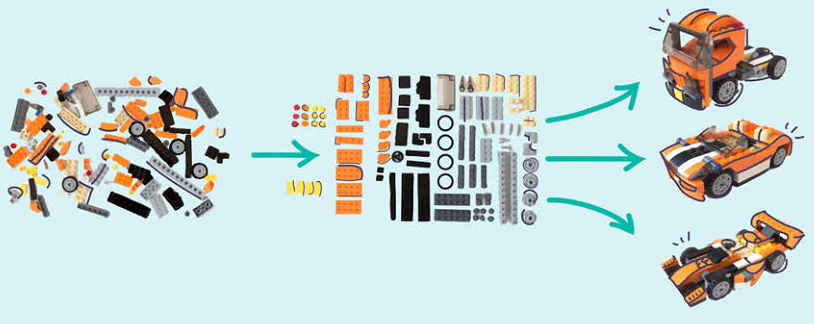Webinar Design: Creating an Impact Presentation

Webinar, short for web-based seminar, is a virtual conference that can be done live or pre-recorded, increasingly popular in the midst of Digital Marketing. The tool has established itself as one of the most effective Rich Material types, positioning your company as the authority on the subject matter and generating Qualified Leads. For the interested audience, the Webinar represents close contact with experts at no cost and at a distance.
So in today’s article, we’ll show you how to enrich your webinar by creating an impact presentation for your audience!
Why invest in the design of your webinar?
When creating a webinar, always remember that your audience expects a simple and effective way to understand content. Often the concepts you want to convey are complex, and image reinforcement is a great way to be didactic and keep the attention of viewers. By creating a neat presentation to accompany your Webinar, as well as showing readiness and professionalism, you have a great opportunity to consolidate your brand in public memory by using colors, images, and fonts that match your visual identity.
1. Choose the ideal software
There are tons of software that can be used; slideshow maker, graphic design programs and programs focused on creating presentations. You can mount the slides directly in the presentation program if you are already used to it. For both cases, the tips we give in this article are worthwhile. Typically, Adobe Illustrator and Photoshop are the programs we use for layout creation because they allow a high degree of refinement in screen design. There are also free alternatives like Pixlr, Gimp and Inkscape. We recommend using graphics software if you have someone on your team who has experience using these tools.
2. Content and language
Whenever you create a presentation for the Webinar, remember that it only accompanies the content, which dictates the rhythm and tone. It is important that the assembler is in contact with the writer of the content, so there is no risk of misrepresentation. When assembling the text for the Webinar, the content writer should synthesize the essence of the text into topics, leaving as few words as possible in the presentation. The presentation is a visual aid and should not contain long texts (let alone the full text). It is important to have a well-structured script for the slides, guiding the presentation creation and taking into account everything that will be spoken in the Webinar.
3. File Format
Before you start producing your Webinar screens, choose the platform you will use for mounting / displaying, so that the screens are developed in the right format. When creating the presentation file, both in the graphics software and in the presentation assembly, it is important to configure its size. Considering the availability of the Webinar after its recording, current video formats are the most suitable. Whenever possible, we recommend using Full HD 1920px x 1080px resolution (16: 9 aspect ratio), which will result in high quality video when exported.
4. Colors and visual style
With your document created in the correct dimensions, it’s time to define the visual style of your slides. If your brand has a defined color palette, go for it! Institutional colors reinforce your brand as well as logo design and are a great starting point for creating the layout. Just be careful not to overdo it, ideally limit the palette and use a few colors at a time.
5. Typography
The font you use in a presentation can make all the difference. Doubt? Yeah, the only thing that changed was the font, and see what a difference it makes! It is critical that the choice of fonts be consistent with the tone of the presentation and the company. Using your brand’s institutional fonts may be interesting, but always be mindful of the readability and combination of fonts. To make no mistake, opt for simplicity.
